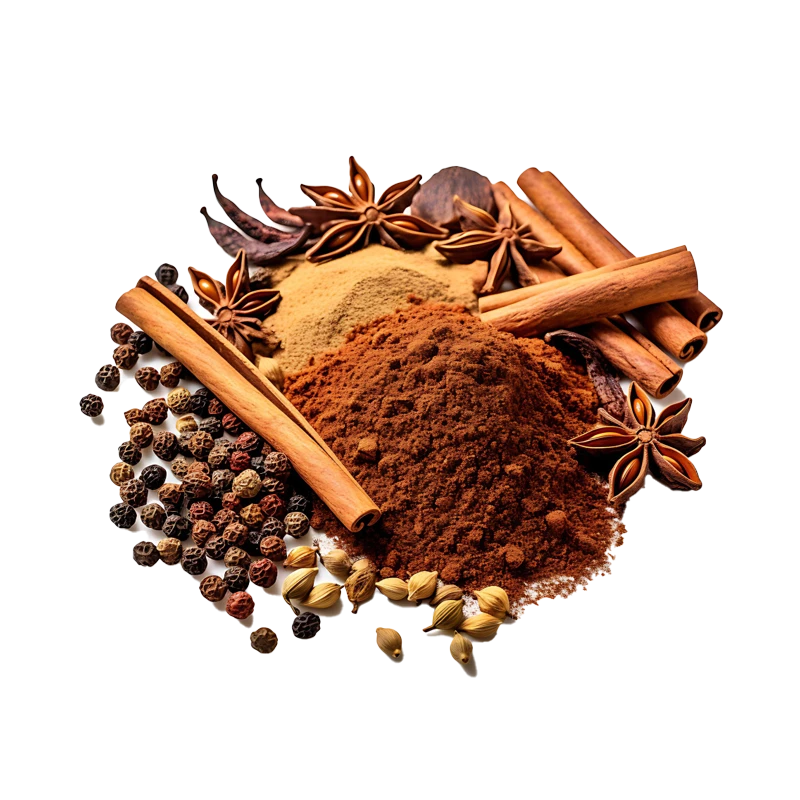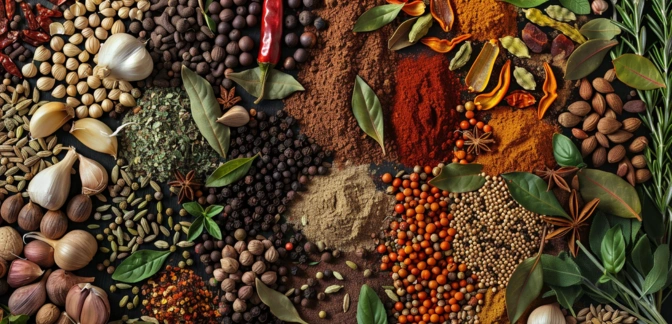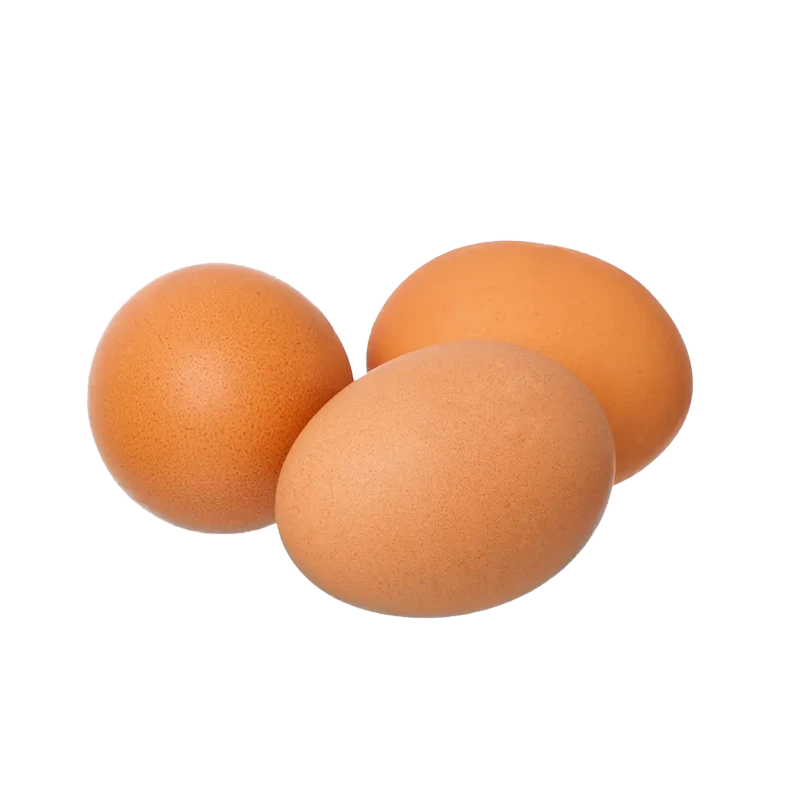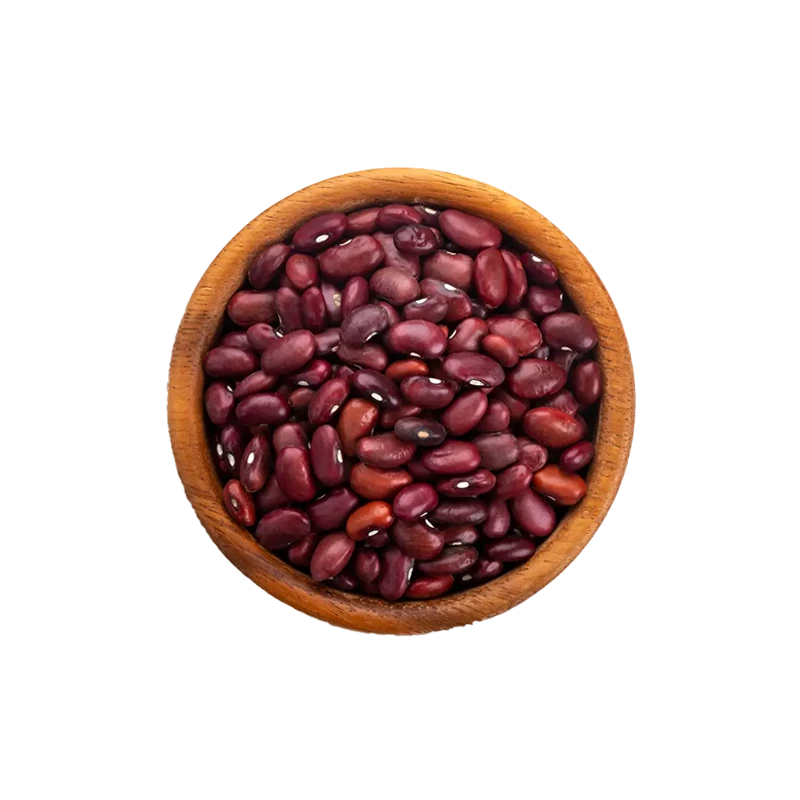Spices — Nutrients, Health Benefits, and Shopping Tips

Written by Listonic Team
Last update on September 4, 2024
Spices nutrients
Nutrition facts
Amount per 100 g
Calories
🔥 251 kcal
| Nutrition per: 100 g | Value | % Daily Value* |
|---|---|---|
| Carbs | 50 g | 18.18% |
| Fiber | 25 g | 89.29% |
| Sugars | 0 g | - |
| Glycemic Index | 5 | - |
| Protein | 10 g | 20% |
| Sodium | 20 mg | 0.87% |
| Total Fat | 3 g | 3.85% |
*The % of Daily Value (DV) tells you how much a nutrient in a serving of food contributes to a daily diet. 2,000 calories a day is used for general nutrition advice.
25 g
✅ High Fiber Content
10 g
🧀 Good Protein Content
Spices facts & tips
Health benefits
- Enhance flavor in dishes, making them more enjoyable and palatable, which can encourage healthy eating habits.
- Contain antioxidants that help protect the body from free radicals and reduce inflammation.
- May have antimicrobial properties, which can help fight off infections and improve overall health.
- Can aid digestion by stimulating the production of digestive enzymes and improving gut motility.
- Support overall health by providing a variety of bioactive compounds that can have numerous beneficial effects.
Health risks
- Potential for digestive irritation such as heartburn or stomach discomfort, particularly in individuals sensitive to spicy or strong-flavored spices.
- Risk of allergic reactions in some individuals, particularly those allergic to specific spices like cinnamon, nutmeg, or paprika, causing symptoms like itching, swelling, or difficulty breathing.
- Potential for contamination with pesticides, heavy metals, or harmful bacteria if spices are not properly sourced, processed, or stored.
- Risk of overuse leading to excessive intake of certain compounds that may cause adverse health effects, such as too much turmeric or cayenne pepper.
How to choose spices
Spices should be aromatic and vibrant in color, which indicates they are fresh and have been properly stored. The texture should be fine and consistent, free from clumps or moisture.
Avoid spices that smell musty or look faded, as they likely won’t impart much flavor to your dishes. Spices that have hardened or caked should also be avoided, as they have been exposed to air for too long and will not perform well in cooking.

How to store spices
Spices should be stored in airtight containers in a cool, dark place. Keeping them in the pantry helps preserve their flavor and potency for up to a year. Proper storage ensures that spices remain fresh and aromatic.
Exposure to light and air can cause spices to lose their flavor. Avoid storing them near heat sources, as this can degrade their quality. Always ensure the containers are tightly sealed to maintain freshness and prevent contamination.
✅ Extra Tip
How long do they last?
Spices can last for 1-2 years when stored in an airtight container in a cool, dark place. For the best flavor, use them within 6-12 months.
What to do with leftovers?
Leftover spices can be used in a variety of culinary and non-culinary ways. In the kitchen, spices are essential for adding flavor and depth to dishes like soups, sauces, marinades, and baked goods. They can be used individually or combined to create custom spice blends for specific cuisines or dishes.
Beyond cooking, spices have numerous other uses. They can be used in DIY beauty treatments, such as mixing them into face masks, scrubs, or bath soaks for their aromatic and therapeutic properties. Spices like cinnamon, cloves, and nutmeg can be used in homemade potpourri or sachets to add a warm, inviting scent to your home. Additionally, certain spices can be used in natural cleaning solutions, such as using ground cinnamon to deter ants or mixing essential oils from spices with water to create a natural air freshener. Spices can also be used in crafting to create scented candles, homemade soaps, or to dye fabrics and papers.
👨⚕️️ Medical disclaimer
Discover products from other categories
Listonic Team
Fact-checked
Our editorial team checked this article to make sure it was accurate at the time of publishing it.
Get the top-rated shopping list app on your phone!







